Medically reviewed by Dr Chandril Chugh,
Renowned Neurologist and American Trained Specialist
Testicular cancer is a potentially serious condition that affects the testicles, the male reproductive organs responsible for producing sperm. While some individuals may not experience any symptoms, it is important to be aware of the early signs of testicular cancer so that prompt medical attention can be sought if necessary. Knowing these symptoms can help in early detection and improve the chances of successful treatment.
Key Takeaways:
- Testicular cancer may present with various symptoms or signs, such as an enlarged testicle, a small lump or area of hardness, pain or discomfort in the testicle or scrotum, changes in the way a testicle feels, and more.
- Seek medical evaluation if you notice any abnormalities in your testicles, such as a painless lump or swelling, changes in size or feel, or other symptoms that persist.
- It is important to be aware that some symptoms of testicular cancer can also be caused by non-cancerous conditions, so it is essential to consult a healthcare professional for a proper diagnosis.
- Several risk factors, such as a family history of testicular cancer or certain physical features, can increase the likelihood of developing the disease.
- If signs or symptoms of testicular cancer are present, visit a doctor for a thorough examination and appropriate diagnostic tests.
Painless Lump or Swelling on Testicle
One of the primary signs of testicular cancer is the presence of a painless lump or swelling on either testicle. If detected early, the lump may be about the size of a pea or a marble, but it can grow larger over time. It is essential to seek medical evaluation if any enlargement, lump, hardness, pain, or tenderness is noticed in the testicle or scrotum.
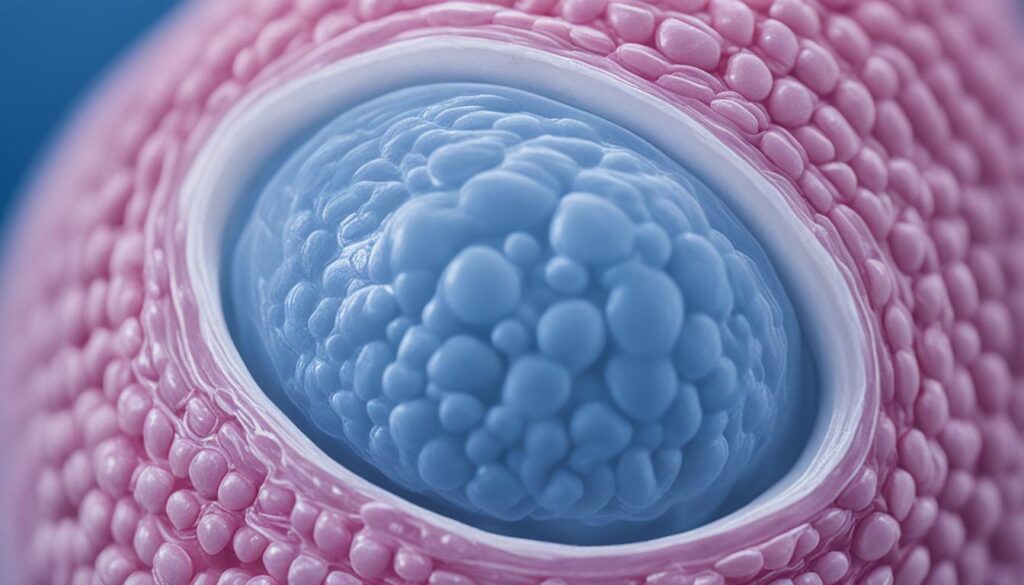
Early detection of testicular cancer is crucial for successful treatment. Regular self-exams can help identify any abnormalities or changes in the testicles. By performing a simple monthly check, you can increase the chances of detecting a potential issue early on.
If you notice any unusual symptoms such as a painless lump, swelling, or changes in the size or feel of your testicles, it is important to consult a healthcare professional promptly. They will perform a thorough examination and may recommend further diagnostic tests, such as an ultrasound or blood tests for tumor markers, to determine the presence of a testicular tumor.
Remember, even if the lump or swelling is painless, it should never be ignored. Early diagnosis and treatment significantly improve outcomes and offer the best chance of a full recovery. Don’t delay seeking medical attention if you suspect any abnormalities in your testicles.
Changes in Testicle Size or Feel
When it comes to testicular cancer, changes in the size or feel of the testicles can be important indicators of a potential problem. One of the common signs of testicular cancer is the development of a testicular tumor, which may cause physical changes in the affected testicle.
Interestingly, these changes can manifest in various ways. The affected testicle may become firmer or harder compared to the healthy one. The size of the testicle may also change, either growing larger or smaller. Feeling a sense of heaviness in the scrotum can accompany these changes.
Regular self-examinations are essential in detecting any changes early on. If you notice any differences in the size or feel of your testicles, it is crucial to consult a healthcare professional for further evaluation.
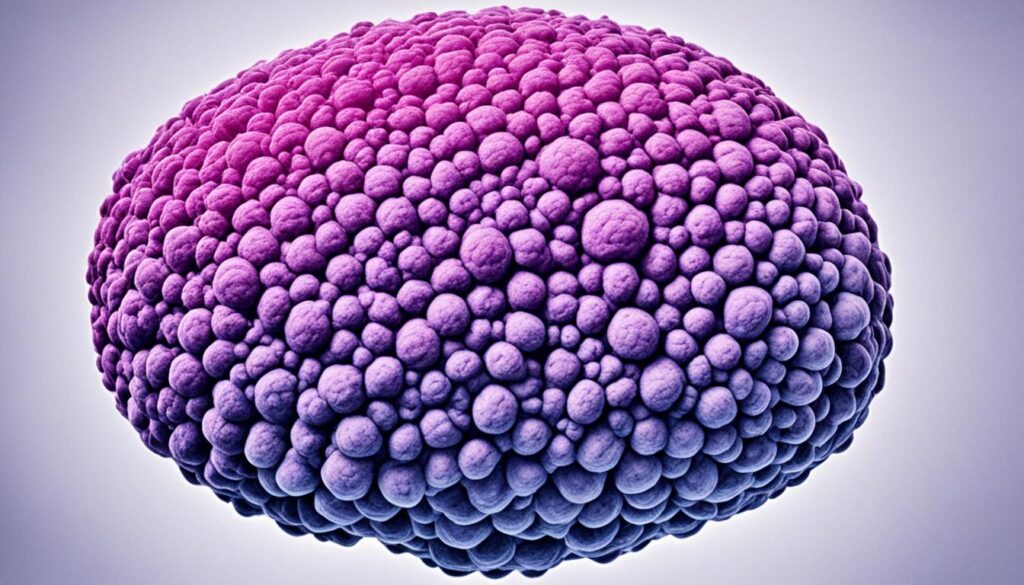
It’s important to remember that not all changes in testicle size or feel are indicative of testicular cancer. However, it is always better to err on the side of caution and seek medical advice if you have any concerns.
| Signs of Testicular Cancer | Normal Testicle |
|---|---|
| Firmness or hardness | Uniform texture |
| Growth in size | Consistent size |
| Decrease in size | Stable size |
Remember, early detection plays a critical role in the successful management of testicular cancer. Being aware of changes in testicle size or feel and seeking prompt medical attention can significantly improve outcomes.
Other Symptoms and Signs of Testicular Cancer
In addition to the presence of a lump or swelling on the testicle, testicular cancer can manifest with various other symptoms and signs. Recognizing these symptoms is crucial for prompt diagnosis and treatment. Some common symptoms of testicular cancer include:
- Pain, discomfort, or numbness: You may experience pain, discomfort, or numbness in the testicle or scrotum. These sensations may be persistent or intermittent.
- Dull ache: Some individuals with testicular cancer may experience a dull ache in the lower abdomen or groin. This discomfort may be mild or more pronounced.
- Fluid buildup: A sudden buildup of fluid in the scrotum can be a sign of testicular cancer. This may cause the scrotum to appear swollen or enlarged.
- Breast tenderness or growth: In rare cases, testicular cancer can lead to breast tenderness or the growth of breast tissue in males. This is due to hormonal changes caused by the tumor.
- Lower back pain: Some individuals may experience lower back pain as a symptom of testicular cancer. This pain may radiate from the lower abdomen or pelvis.
- Shortness of breath and chest pain: In advanced cases, when testicular cancer has spread to the lungs or other organs, you may experience shortness of breath and chest pain.
- Swelling of the legs: Testicular cancer that has metastasized, or spread, may cause swelling in the legs. This is due to fluid retention caused by the tumor.
If you notice any of these symptoms, it is important to consult a healthcare professional for further evaluation. Remember, early detection and timely treatment are key to improving outcomes for testicular cancer.
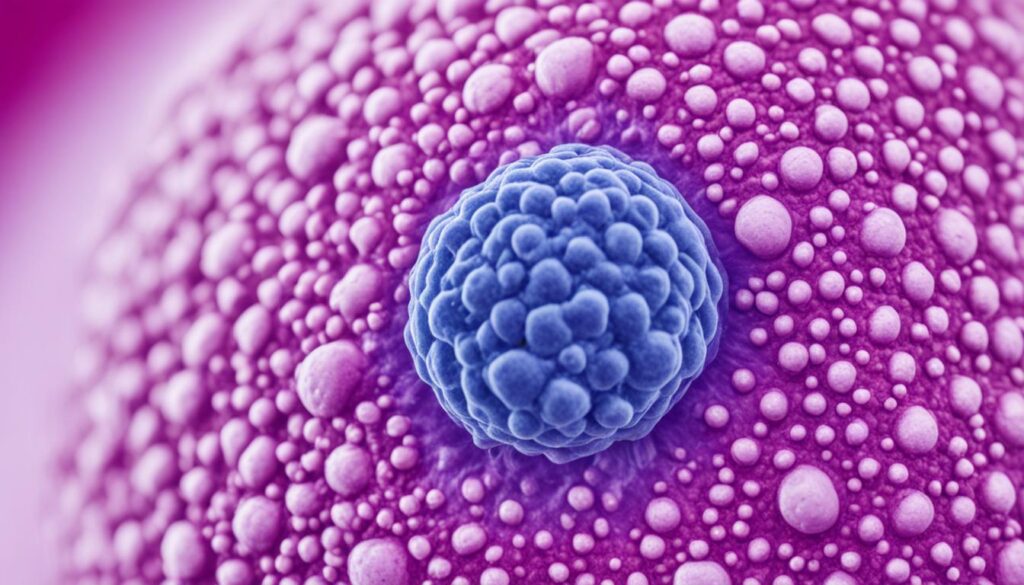
The image above depicts a visual representation of the various symptoms and signs of testicular cancer. It serves as a helpful reference to understand the different manifestations of the disease.
Non-Cancerous Conditions That Mimic Testicular Cancer Symptoms
While testicular cancer presents with specific symptoms, it’s important to note that these symptoms can also be caused by non-cancerous conditions. Below is a list of non-cancerous conditions that can mimic testicular cancer symptoms:
- Changes in size or a lump in a testicle
- A cyst called a spermatocele
- An enlargement of blood vessels called a varicocele
- A buildup of fluid in the membrane around the testicle called a hydrocele
- An opening in the abdominal muscle called a hernia
- Pain
- Infection
- Injury
- Twisting of the testicle
If you experience any of these symptoms, it is important to consult a healthcare professional for a proper diagnosis. They will be able to determine whether the symptoms are indicative of a non-cancerous condition or if further testing is required.
If you are unsure about the cause of your symptoms, it is always recommended to seek medical advice. Early detection and proper diagnosis are key to ensuring prompt and appropriate treatment.
Remember, only a healthcare professional can accurately diagnose your condition and provide appropriate guidance.
Mimicking Symptoms: Spermatocele
A spermatocele is a type of cyst that develops in the epididymis, the coiled tube located at the back of the testicle. It is filled with fluid and contains sperm. Spermatoceles are usually painless and typically don’t require treatment unless they cause discomfort or become significantly enlarged.
Mimicking Symptoms: Varicocele
A varicocele is an enlargement of the veins within the scrotum. It can cause pain, discomfort, or a feeling of heaviness in the testicle. Varicoceles are more commonly found on the left side of the scrotum and are often associated with infertility. Treatment may be necessary if the varicocele causes significant pain or affects fertility.
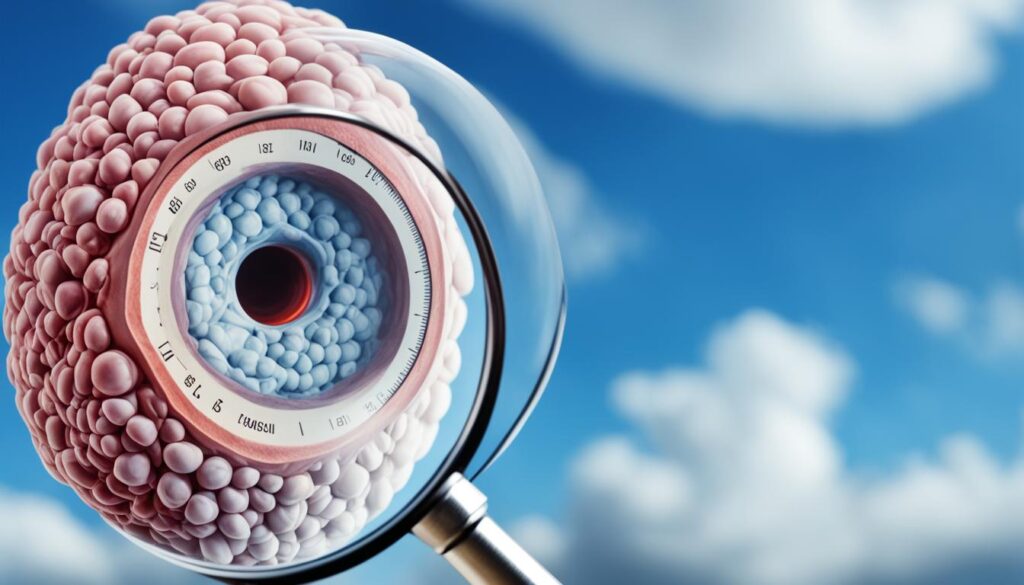
Risk Factors for Testicular Cancer
Several factors can increase the risk of developing testicular cancer. By understanding these risk factors, you can be more proactive and vigilant about your health. Some of the key risk factors for testicular cancer include:
- Undescended Testicle: If you were born with an undescended testicle, where one or both of your testicles haven’t moved down into the scrotum, you have an increased risk of testicular cancer.
- Family History: Having a close family member, such as a father or brother, with a history of testicular cancer increases your risk.
- Personal History: If you have previously had testicular cancer in one testicle, you are at an increased risk of developing it in the other testicle.
- Infertility: There may be a link between infertility and testicular cancer, though the exact connection is still being studied.
- HIV and AIDS: Individuals with HIV or AIDS are more susceptible to developing testicular cancer.
- Hypospadias: This birth defect where the opening of the urethra is on the underside of the penis instead of the tip has been associated with an increased risk of testicular cancer.
- Regular Cannabis Use: Some studies suggest that long-term marijuana use can be a risk factor for testicular cancer.
- Intersex Variations: Certain intersex conditions, such as Klinefelter syndrome and gonadal dysgenesis, can contribute to an increased risk of testicular cancer.
It’s important to note that having one or more of these risk factors doesn’t necessarily mean you will develop testicular cancer. Conversely, some individuals without any of these risk factors may still develop the disease. Regular self-examinations and routine medical check-ups are essential for early detection and timely treatment.

By understanding the risk factors associated with testicular cancer and staying vigilant about your health, you can take proactive steps towards early detection and prevention.
Diagnosis of Testicular Cancer
If you are experiencing signs or symptoms of testicular cancer, it is crucial to consult a doctor for a proper diagnosis. Timely detection can significantly impact the outcome of treatment. As part of the diagnostic process, several tests may be conducted to evaluate your condition and determine the presence of testicular cancer.
The diagnostic tests for testicular cancer typically begin with a physical examination. During this examination, your doctor will carefully examine your testicles and scrotum for any abnormalities such as lumps, swelling, or changes in size or texture. They may also check for tenderness, pain, or discomfort in the region.
If the physical examination raises any concerns, further tests may be recommended. One commonly used diagnostic tool for testicular cancer is an ultrasound. This imaging technique uses sound waves to create detailed images of the testicles, allowing the doctor to identify and evaluate any masses or abnormalities present. Ultrasound is a non-invasive and painless procedure.
Additionally, blood tests may be performed to measure specific tumor markers associated with testicular cancer. These markers include alpha-fetoprotein, beta human chorionic gonadotrophin, and lactate dehydrogenase. Elevated levels of these markers in the blood can indicate the presence of cancerous cells in the testicles.
In some cases, surgical removal of the affected testicle may be necessary for a definitive diagnosis. This procedure, known as a biopsy or orchidectomy, involves removing the entire testicle for further examination under a microscope. The biopsy results can provide valuable information about the presence, type, and stage of testicular cancer. It is important to note that even if cancer is diagnosed, surgical removal of one testicle does not typically impact fertility or sexual function.
Early diagnosis through these diagnostic tests is crucial in initiating appropriate treatment and improving outcomes for individuals with testicular cancer.
Treatment for Testicular Cancer
When it comes to testicular cancer, the choice of treatment depends on several factors such as the stage and type of cancer. Fortunately, there are various treatment options available to effectively manage this condition.
If the cancer is detected early and localized, surgery may be recommended. This typically involves the removal of the affected testicle, a procedure known as orchiectomy. While losing a testicle may seem daunting, it is important to remember that it does not affect fertility or the ability to have a normal sex life.
In cases where the cancer has spread beyond the testicles, additional treatment modalities may be necessary. Chemotherapy, which involves the use of powerful drugs to destroy cancer cells, is commonly employed. This form of treatment can target cancer cells throughout the body, making it effective against metastatic testicular cancer.
In some instances, radiation therapy may be utilized to target and destroy cancer cells using high-energy radiation beams. This treatment option is generally reserved for specific cases and is carefully tailored to minimize side effects.
Often, a combination of treatments may be recommended. This multidisciplinary approach aims to provide the most comprehensive and effective care tailored to an individual’s specific case. The healthcare team, consisting of various specialists, will collaborate to determine the ideal treatment plan for you.
It is important to note that managing testicular cancer goes beyond medical interventions. Palliative care is also an essential component of treatment, focusing on symptom management, pain relief, and improving overall quality of life.
Testicular Cancer Treatment at a Glance:
| Treatment Options | Description |
|---|---|
| Surgery | Removal of the affected testicle (orchiectomy). |
| Chemotherapy | Administration of powerful drugs to destroy cancer cells. |
| Radiation Therapy | Use of high-energy radiation beams to target and destroy cancer cells. |
Remember, treatment options may vary depending on individual factors, and it is important to consult with a healthcare professional to determine the best course of action for your specific case. With the right treatment and care, testicular cancer can be effectively managed, giving you the best chance for a positive outcome.
Conclusion
Testicular cancer is a relatively rare but treatable form of cancer that affects the testicles, the male reproductive organs. Early detection and immediate medical attention are crucial in improving outcomes for individuals with testicular cancer. By being aware of the signs and symptoms associated with this condition, you can take proactive steps to seek medical evaluation for any abnormalities you may experience.
It is important to follow the recommended screening guidelines and undergo regular check-ups with a healthcare professional. Timely diagnosis plays a significant role in successful management of testicular cancer. With appropriate treatment options such as surgery, chemotherapy, and radiation therapy, the prognosis for individuals with testicular cancer is generally favorable.
If you notice any changes in the size, shape, or feel of your testicles, or experience any other symptoms such as pain, discomfort, or lumps, it is essential to consult with a healthcare professional. They can provide personalized advice, perform necessary diagnostic tests, and recommend appropriate treatment options based on your specific case.
Remember, taking care of your health and seeking medical attention when needed are crucial steps in managing and treating testicular cancer. Stay informed, stay proactive, and prioritize your well-being. Consult with a healthcare professional for personalized advice and care to ensure the best possible outcomes.
FAQ
What are the early signs of testicular cancer?
The most common early signs of testicular cancer include an enlarged testicle, a small lump or area of hardness in the testicle, pain, discomfort, or numbness in the testicle or scrotum, changes in the way a testicle feels or a feeling of heaviness in the scrotum, a dull ache in the lower abdomen or groin, a sudden buildup of fluid in the scrotum, breast tenderness or growth, lower back pain, shortness of breath, chest pain, and swelling of the legs.
What is the primary sign of testicular cancer?
One of the primary signs of testicular cancer is the presence of a painless lump or swelling on either testicle.
How can testicular cancer affect the way a testicle feels or the scrotum?
Testicular cancer can cause changes in the way a testicle feels or a feeling of heaviness in the scrotum. One testicle may become firmer than the other, or the affected testicle may grow bigger or smaller.
What are the other symptoms and signs of testicular cancer?
Other symptoms and signs of testicular cancer may include pain, discomfort, or numbness in the testicle or scrotum, a dull ache in the lower abdomen or groin, a sudden buildup of fluid in the scrotum, breast tenderness or growth, lower back pain, shortness of breath, chest pain, and swelling of the legs.
What conditions can mimic testicular cancer symptoms?
Many symptoms and signs of testicular cancer can also be caused by non-cancerous conditions such as changes in size or a lump in a testicle, a cyst called a spermatocele, an enlargement of blood vessels called a varicocele, a buildup of fluid in the membrane around the testicle called a hydrocele, an opening in the abdominal muscle called a hernia, pain, infection, injury, and twisting of the testicle.
What are the risk factors for testicular cancer?
Several factors may increase the risk of developing testicular cancer, including having an undescended testicle, a family history of testicular cancer, personal history of testicular cancer, infertility, HIV and AIDS, physical features such as Hypospadias, regular cannabis use, and some intersex variations.
What are the diagnostic tests for testicular cancer?
Diagnostic tests for testicular cancer include a physical examination, ultrasound to confirm the presence of a mass, and blood tests for tumor markers such as alpha-fetoprotein, beta human chorionic gonadotrophin, and lactate dehydrogenase. In some cases, surgical removal of the affected testicle may be necessary for a definitive diagnosis.
What are the treatment options for testicular cancer?
The treatment for testicular cancer depends on the stage and type of cancer. Treatment options may include surgery to remove the testicle, chemotherapy, radiation therapy, or a combination of these modalities. The choice of treatment will be determined by the healthcare team based on the individual’s specific case.
What is the prognosis for testicular cancer?
Testicular cancer is a relatively rare but treatable form of cancer. With early detection and prompt medical attention, testicular cancer can be successfully managed, and the prognosis is generally favorable. It is important to be aware of the signs and symptoms of testicular cancer, seek medical evaluation for any abnormalities, and follow the recommended screening guidelines.


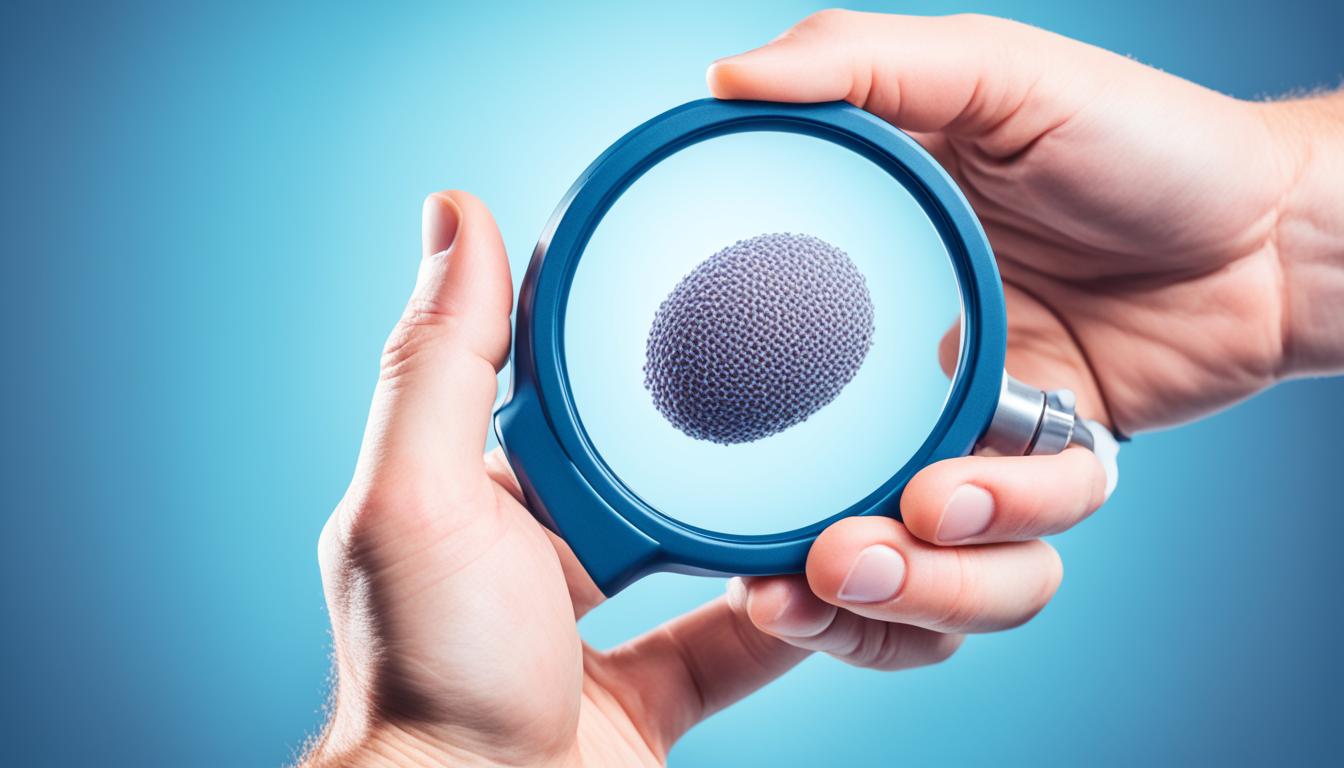


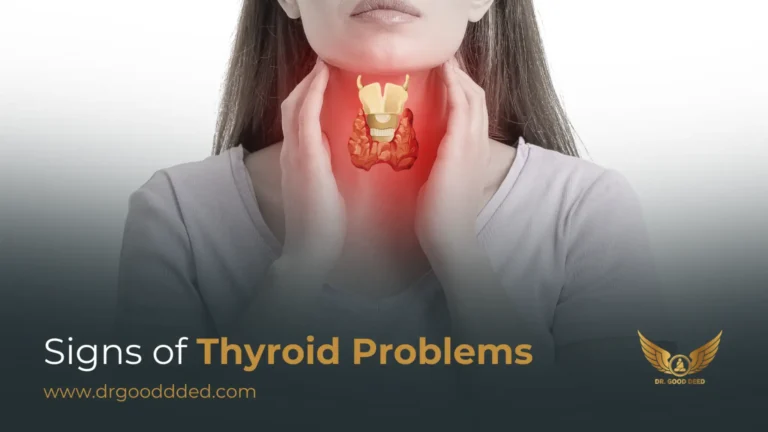
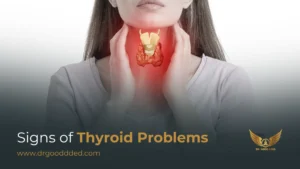
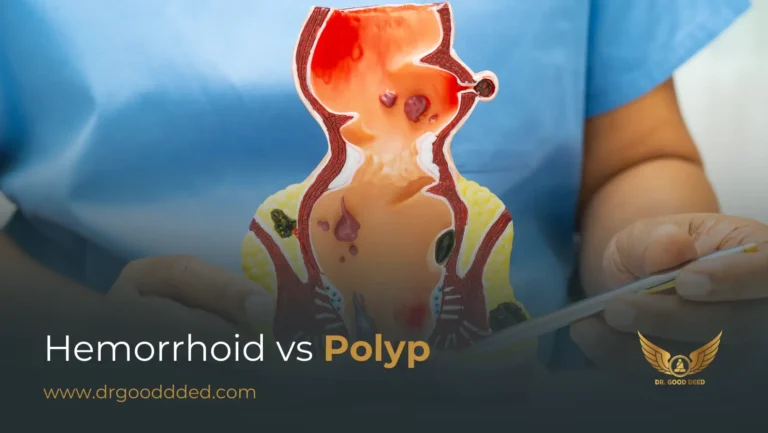
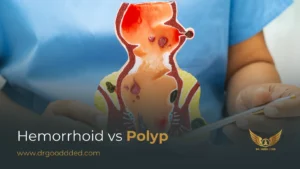
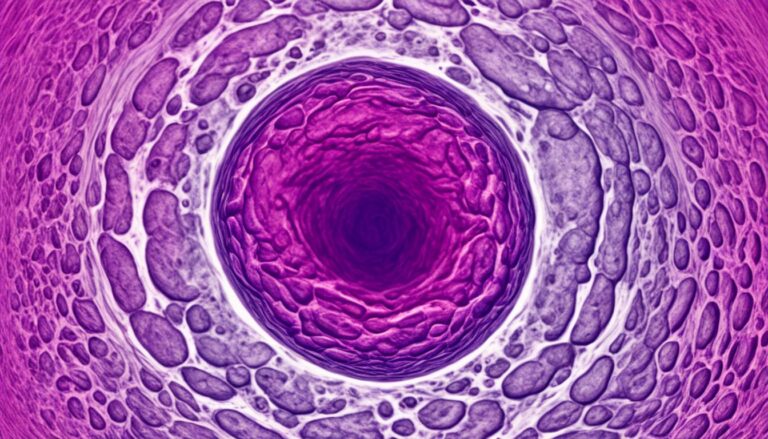
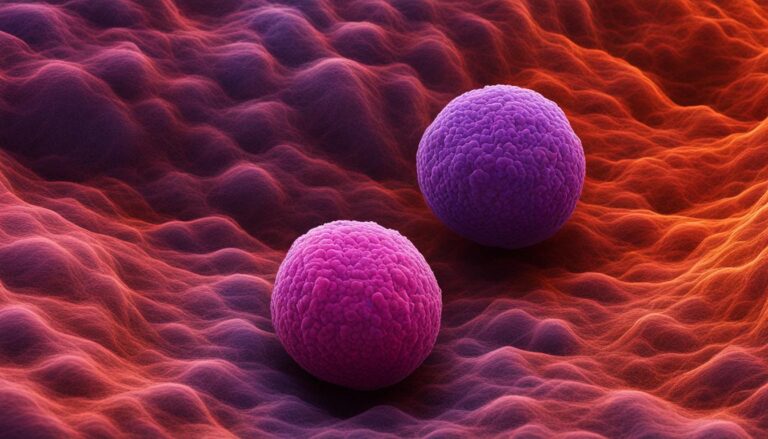
Leave a Comment